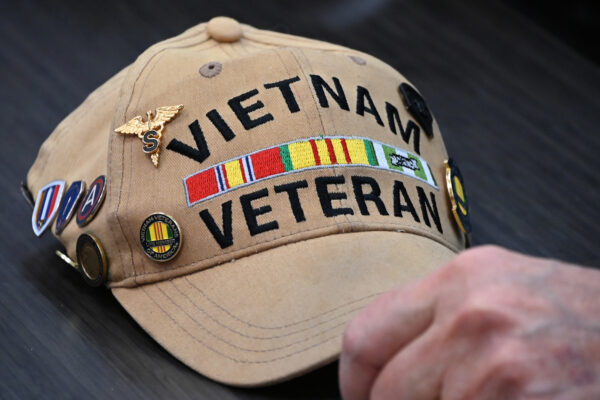
(Photo: U.S. Air National Guard Master Sgt. Anthony Agosti)
More than 50 years after the Vietnam War, U.S. Veterans continue to face serious health problems linked to their combat experiences, according to two new studies from Columbia University’s Mailman School of Public Health and the VA Boston Healthcare System. Findings show that both combat exposure and PTSD are major contributors to chronic health conditions that affect Veterans well into old age.
The research is based on one of the longest-running studies of Vietnam Veterans, tracking 729 men who served in Vietnam and were surveyed in 1984, 1998, and 2020. These participants, now averaging 72 years old, were part of a larger initial group of 12,400 Service Members who served during the conflict.
“Combat exposure and PTSD were strong predictors of heart disease and other chronic illnesses in Veterans, especially those who faced the most intense combat,” said Dr. Jeanne Stellman, co-author and professor emerita of health policy and management at Columbia.
Nearly 28% of the Veterans reported being diagnosed with heart disease. Those exposed to the heaviest combat were nearly twice as likely to have heart conditions compared to those with lighter or no combat exposure. PTSD was also strongly linked to other health issues such as arthritis, sleep apnea, and gastroesophageal reflux disease, contributing to a diminished quality of life.
One key finding centers on sub-threshold PTSD, when symptoms of trauma are present but not severe enough to meet clinical diagnosis criteria. Around 25% of participants fell into this category at some point. These Veterans had worse physical and mental health than those who never experienced PTSD but are often ineligible for VA support or treatment programs due to diagnostic thresholds.
“Veterans with sub-threshold PTSD suffer health burdens that are often overlooked,” said Dr. Steven Stellman, co-author and professor emeritus of epidemiology at Columbia. He called for VA policy changes to ensure this group receives the care they need and deserve.
The study identified four long-term PTSD patterns: current PTSD (9.1%, rising to 15.5% among those who faced heavy combat), past PTSD (9.7%), sub-threshold PTSD (25.2%), and never PTSD (56%). Those with current or sub-threshold PTSD reported the lowest life satisfaction, highest anxiety and depression levels, and most chronic illnesses compared to other groups.
Veterans who lacked community support after returning from Vietnam were more likely to develop PTSD, researchers found. They also faced higher rates of divorce, social isolation, and difficulty reintegrating into civilian life.
“This research reinforces how the trauma of war continues to affect Veterans long after the war ends,” Jeanne Stellman stated. The authors say long-term care plans must address both the physical and mental effects of combat, especially for aging Veterans still carrying the weight of their service.













As a veteran leading an impactful art project, I provide fellow veterans with art sessions that focus on therapeutic healing. Throughout my years of hosting art therapy, I have witnessed how Vietnam veterans are finally addressing long-overdue issues. This creative outlet empowers them to engage in open dialogues with their counselors, psychiatrists, and other medical professionals, encouraging them to tackle unresolved challenges that have lingered since their time in service. Art becomes not just a medium for expression but a vital step towards healing and recovery.